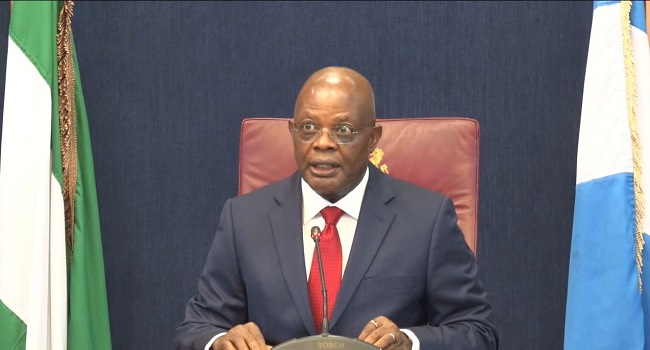Paragraph 1: Introduction – A New Era for Rivers State Electoral Commission
The political landscape of Rivers State, Nigeria, is poised for a significant shift with the appointment of a new chairman and members to the Rivers State Independent Electoral Commission (RSIEC). This move, orchestrated by the Sole Administrator of Rivers State, Vice Admiral Ibok-Ete Ibas, marks a fresh start for the commission responsible for conducting local government elections within the state. The incoming leadership, headed by Dr. Michael Ekpai Odey, comprises a diverse team of six members and four professors, signifying a potential emphasis on academic expertise and varied perspectives in electoral management. This transition comes in the wake of a comprehensive suspension of heads of various Ministries, Departments, and Agencies (MDAs) in Rivers State, including the former RSIEC chairman, Justice Adolphus Enebeli (retd.).
Paragraph 2: The Composition of the New RSIEC – A Blend of Expertise and Diversity
The newly appointed RSIEC boasts a carefully curated blend of professionals, suggesting a deliberate effort to ensure balanced representation and diverse skill sets. Dr. Michael Ekpai Odey assumes the mantle of leadership as the chairman, bringing his experience and vision to guide the commission’s operations. He will be supported by six members, whose individual backgrounds and expertise will contribute to the overall effectiveness of the RSIEC. Notably, the inclusion of four professors – Professor Author Nwafor, Professor Godfrey Woke Mbgudiogha, Professor (Dame) Joyce Akaninwor, and Professor Chidi Halliday – underscores a commitment to incorporating academic rigor and intellectual depth into electoral processes. This academic representation may signal a focus on evidence-based decision-making and a commitment to upholding the highest standards of electoral integrity.
Paragraph 3: Timing and Implications of the Appointments – A Strategic Restructuring
The timing of these appointments, effective from Monday, April 7, 2025, holds strategic significance. It allows for a period of transition and preparation, enabling the new RSIEC leadership to familiarize themselves with the commission’s operations and formulate their strategic direction. The appointments also coincide with the broader restructuring of the state’s administrative apparatus through the suspension of MDA heads, suggesting a concerted effort by the Sole Administrator to instill fresh perspectives and enhance governance across various sectors. This synchronized approach implies a desire for comprehensive reform and a renewed focus on efficiency and accountability within the state’s administrative machinery.
Paragraph 4: The Mandate of the RSIEC – Ensuring Fair and Transparent Local Elections
The RSIEC plays a pivotal role in upholding the democratic principles of free and fair elections at the local government level. This commission bears the responsibility of organizing and conducting elections for local government councils, ensuring that these crucial electoral processes are transparent, credible, and inclusive. The new leadership team inherits a significant mandate to strengthen public trust in local elections and foster a participatory environment where citizens can exercise their democratic rights effectively. Their ability to navigate the complexities of electoral management and address potential challenges will be crucial to ensuring the smooth functioning of local governance.
Paragraph 5: Expectations and Challenges – Navigating the Path Ahead
The new RSIEC faces a range of expectations from the public, political stakeholders, and civil society organizations. Foremost among these is the expectation of conducting free, fair, and credible local government elections. They will need to demonstrate impartiality, transparency, and adherence to due process in all electoral activities. Furthermore, they will be tasked with building public confidence in the electoral process and ensuring that the voices of all citizens are heard and respected. Potential challenges could include managing logistical complexities, addressing security concerns, and navigating potential political pressures. Overcoming these obstacles will require a commitment to integrity, collaboration, and effective communication.
Paragraph 6: A New Chapter for Local Governance in Rivers State
The appointment of the new RSIEC leadership marks a significant turning point for local governance in Rivers State. The composition of the commission reflects a deliberate effort to bring in fresh perspectives and expertise, raising hopes for enhanced electoral integrity and accountability. As the new team assumes its responsibilities, the focus will shift towards their ability to deliver on the mandate of conducting credible and transparent local government elections. The success of their tenure will be measured not only by the smooth execution of electoral processes but also by their ability to foster public trust and strengthen democratic participation at the grassroots level. This new chapter in Rivers State’s electoral history holds the promise of improved local governance and a renewed commitment to upholding the principles of democracy.


